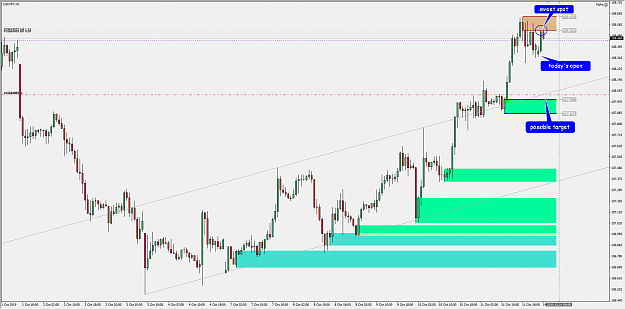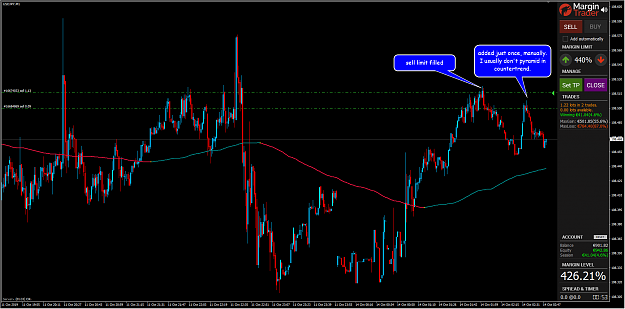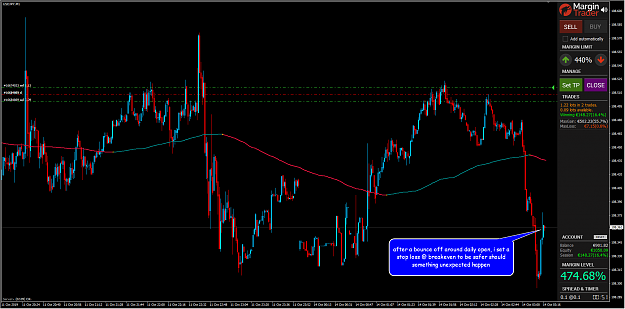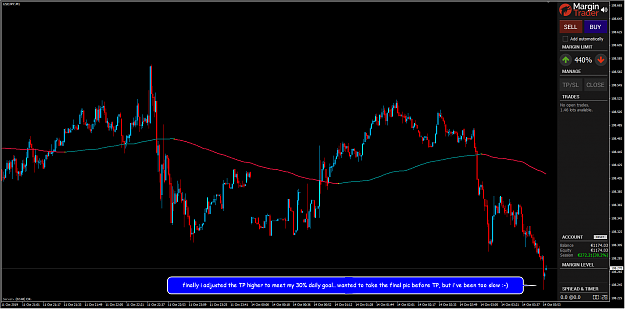You have seen disclosures like this:
"Trading foreign exchange on margin carries a HIGH LEVEL OF RISK, and may not be suitable for all investors. Before deciding to trade foreign exchange you should carefully consider your investment objectives, level of experience, and risk appetite. The possibility exists that you could sustain a loss of some or all of your initial investment and therefore you should not invest money that you cannot afford to lose! The high degree of leverage associated with trading currencies means that the degree of risk compared to other financial products is higher. Leverage (or margin trading) may work against you resulting in substantial loss."
But high leverage does not equal more risk. In fact, for the smart trader it equals less. How?
You don't need to deposit all of your trading capital with your forex dealer. A trader with $1000 to trade can deposit $900 in an FDIC insured account at a local bank (in the U.S.) and put a mere $100 on deposit with a forex dealer that allows small deposits and offers high leverage. Then they can put on trades as large as $5000 with 50:1 leverage and take on an actual leverage against their total trading bank of 5:1.
"But wait!! You can lose your whole deposit and owe more!!!" - says someone out there.
The fact is that in those big crash times (such as the Jan 15, 2015 SNB announcement) many dealers offered negative balance forgiveness to those traders whose accounts were driven into the negative. How did they do this? They are the market makers who won the losses incurred on those accounts. They did not actually take on the losses forgiven by "negative balance forgiveness". No you cannot always count on this but it is easier to negotiate for it with your money in your local account than on deposit with the dealer.
Anyone else using leverage to decrease their third party forex dealer risk?
"Trading foreign exchange on margin carries a HIGH LEVEL OF RISK, and may not be suitable for all investors. Before deciding to trade foreign exchange you should carefully consider your investment objectives, level of experience, and risk appetite. The possibility exists that you could sustain a loss of some or all of your initial investment and therefore you should not invest money that you cannot afford to lose! The high degree of leverage associated with trading currencies means that the degree of risk compared to other financial products is higher. Leverage (or margin trading) may work against you resulting in substantial loss."
But high leverage does not equal more risk. In fact, for the smart trader it equals less. How?
You don't need to deposit all of your trading capital with your forex dealer. A trader with $1000 to trade can deposit $900 in an FDIC insured account at a local bank (in the U.S.) and put a mere $100 on deposit with a forex dealer that allows small deposits and offers high leverage. Then they can put on trades as large as $5000 with 50:1 leverage and take on an actual leverage against their total trading bank of 5:1.
"But wait!! You can lose your whole deposit and owe more!!!" - says someone out there.
The fact is that in those big crash times (such as the Jan 15, 2015 SNB announcement) many dealers offered negative balance forgiveness to those traders whose accounts were driven into the negative. How did they do this? They are the market makers who won the losses incurred on those accounts. They did not actually take on the losses forgiven by "negative balance forgiveness". No you cannot always count on this but it is easier to negotiate for it with your money in your local account than on deposit with the dealer.
Anyone else using leverage to decrease their third party forex dealer risk?



